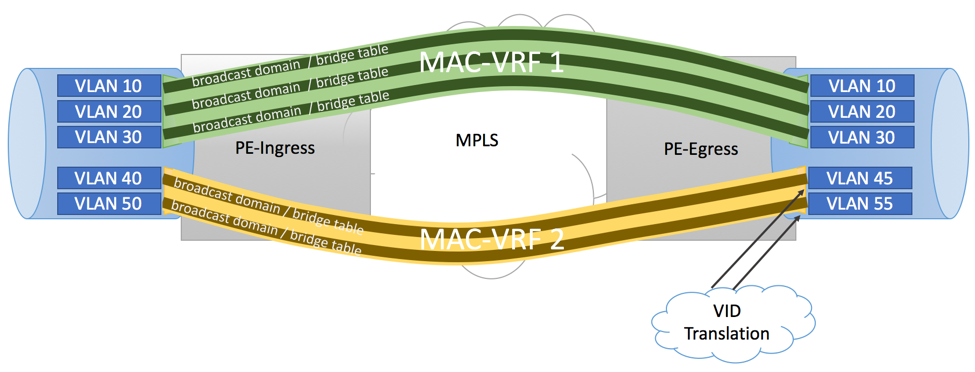EVPN VLAN-Based Service
With this service interface, an EVPN instance consists of only a single broadcast domain (e.g., a single VLAN). Therefore, there is a one-to-one mapping between a VID on this interface and a MAC-VRF. Since a MAC-VRF corresponds to a single VLAN, it consists of a single bridge table corresponding to that VLAN.

Click here for Juniper MX Configuration Example.
EVPN VLAN Bundle Service
With this service interface, an EVPN instance corresponds to multiple broadcast domains (e.g., multiple VLANs); however, only a single bridge table is maintained per MAC-VRF, which means multiple VLANs share the same bridge table. This implies that MAC addresses MUST be unique across all VLANs for that EVI in order for this service to work.

EVPN Port-Based Service
This service interface is a special case of the VLAN bundle service interface, where all of the VLANs on the port are part of the same service and map to the same bundle.

EVPN VLAN-Aware Bundle Service
With this service interface, an EVPN instance consists of multiple broadcast domains (e.g., multiple VLANs) with each VLAN having its own bridge table — i.e., multiple bridge tables (one per VLAN) are maintained by a single MAC-VRF corresponding to the EVPN instance.

EVPN Port-Based VLAN-Aware Bundle Service
This service interface is a special case of the VLAN-aware bundle service interface, where all of the VLANs on the port are part of the same service and are mapped to a single bundle but without any VID translation.

For more information on EVPN, please refer to our other articles on this topic:
